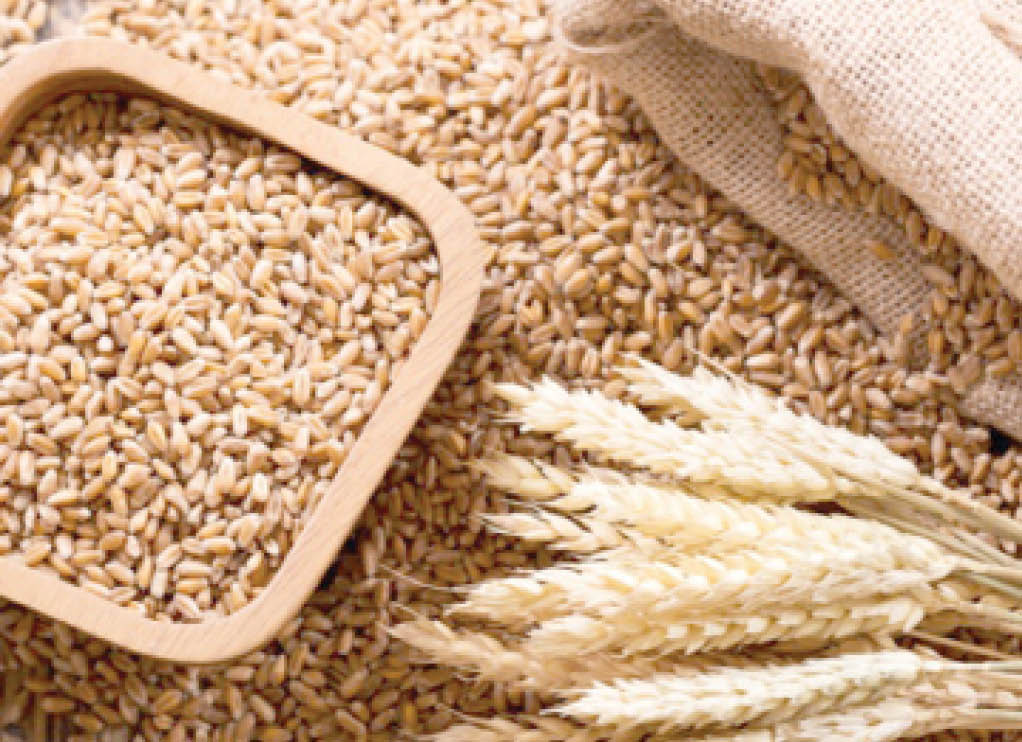At approximately 2.5 million metric tons, Nigerian wheat production is not great at all for a country that prides itself as Africa’s giant. For comparison, Pakistan is the eighth largest wheat producing country in the world, with an annual production of around 24 million metric tons. Nigeria doesn’t even make it in the first 20 largest wheat producing countries of the world.
Dominated by China (world’s largest wheat producing country, with an annual production of around 128 million metric tons), India (India is the second largest wheat producing country, with an annual production of around 98 million metric tons) and the United States: (third largest wheat producing country, with an annual production of around 55 million metric tons).
Obviously, wheat is not a major crop in Nigeria, and the country imports a significant portion of its wheat to meet domestic demand. However, there is potential to increase production in Nigeria through the implementation of improved seed varieties, modern farming techniques, and better access to finance and markets for farmers. I will not dwell on past and even recent money guzzling efforts to boost wheat production in Nigeria which have not only failed, but probably set the country back many years in becoming a wheat production powerhouse.
Apart from its nutritional value as a good source of nutrients, including carbohydrates, protein, fibre, and a range of vitamins and minerals, wheat is a major staple food for people around the world, and global demand for wheat is expected to continue to grow as the world population increases. It is used to make a wide range of products, including flour, pasta, bread, and cereals, which makes it a valuable crop for both human consumption and animal feed. It is also a crop that can be grown in a variety of climates and soil types, which makes it a widely cultivated crop.
- NIGERIA DAILY: How Gun Runners Are Fueling Insecurity In Zamfara State
- 24,714 FCT residents affected by flood in 2022 — FCTA
Wheat is an important commodity for many countries and is an important source of income for many farmers. Wheat is widely cultivated and is one of the most widely traded agricultural commodities in the world. It is an important export commodity for many countries, and the global wheat trade is worth billions of dollars each year (As of two years ago, according to the Food and Agriculture Organisation of the United Nations (FAO), the global trade in wheat was valued at around $22.6 billion).
The production of wheat also creates employment opportunities for many people, including farmers, farm workers, and those working in the wheat processing and manufacturing industry. Wheat is also an important source of revenue for governments, as it is often subject to taxes and tariffs.
In addition to its economic importance, wheat is also an important food security crop. It is a major staple food for people around the world and is often used as a food aid commodity in times of crisis. Ensuring a stable supply of wheat is therefore important for global food security. This begs the question why a country like Nigeria has not capitalized on its abundant agricultural factors of production to become a leading wheat producer in the world.
To become a top wheat producing country, Nigeria has to consider implementing the many agricultural policies it has, including the very excellent Agricultural Transformation Agenda of the last decade. This connotes of a straight-forward strategy. Nigeria should increase investment in the wheat sector to support the development of infrastructure, research and development, and extension services. As regards technology, we should work to promote the use of improved seed varieties and modern farming techniques, such as precision agriculture, to increase productivity and profitability.
Most smallholder farmers, not just wheat farmers in Nigeria do not have access to finance, which limits their ability to invest in their farms and improve productivity. We should work to increase access to finance for wheat farmers, for example through the various microfinance institutions or partnerships with banks and other private entities in the space. As a matter of utmost importance, we should also figure out a way to Increase access to markets as most wheat farmers in Nigeria face challenges in accessing markets, which limits their ability to sell their products and generate income. We have to increase access to markets for smallholder farmers, for example through the development of market linkages or the utilisation of real (non-political) farmers’ cooperatives.
Equally important is strengthening extension services. Extension services play a critical role in supporting farmers and increasing productivity, especially in wheat production which requires more training since its production is not as prevalent in the country as rice, maize and other grains. Nigeria should focus on strengthening extension services by providing extension workers with the necessary training and resources to effectively support farmers.
Lastly, we have to promote the development of value-added processing in the wheat value chain. Ranging from milling, to baking, and various foods production, we have to invest in various forms of value addition to increase the value of our wheat products and create new job opportunities.
Besides the export value the dedication to wheat production will bring Nigeria (which is especially significant because of current economic uncertainty and the resulting rise in global wheat prices), it can help in protecting us from price fluctuations and supply disruptions. This is not to mention the potential for increase in the availability of affordable, nutritious food for Nigerians.

 Join Daily Trust WhatsApp Community For Quick Access To News and Happenings Around You.
Join Daily Trust WhatsApp Community For Quick Access To News and Happenings Around You.


